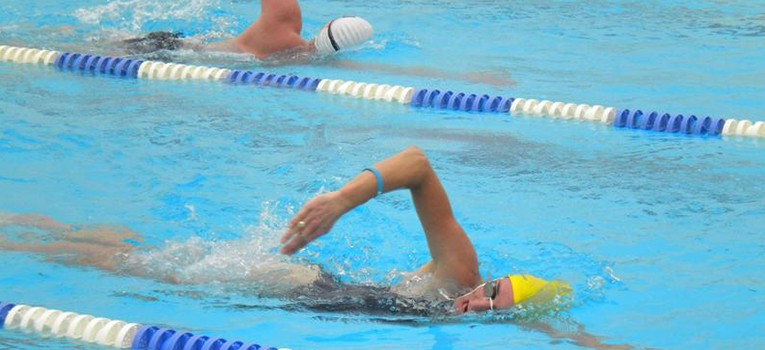How lovely it would be to have a swim in a pool full of blue water, in a sunny, hot day? But what if it really carries harmful effects on our body if water enters into the ears and nose and get trapped inside?
This is a question many of us get in our minds, before getting in to a pool. Therefore, in this article, we are going to provide some important information about the real effects of swimming, excluding myths and folktales, related.
According to research studies done so far, although swimming in general doesn’t cause any harmful effect to one’s ears or nose, it tends to depend on the overall quality of water. If water is contaminated with dirt full of pathogenic microorganisms, a person is more likely to get infections, anywhere in the body. On the other hand, various foreign bodies in water also can result in trauma and damage to external organs of the body including ears and nose. If a person is already having an ear or nose infection, ever had a punctured or perforated ear drum or ever gone through an ear surgery, they are more susceptible to get these negative consequences of swimming.
Swimmer’s ear, which is a very common outer ear infection among swimmers, occurs due to bacteria and fungi entering into ears and gets trapped inside along with water. They will rapidly multiply in the moist environment and give rise to an infection causing pain. Patients with swimmer’s ear will also complain of the feeling of blocked ears, itching around the area, tender Tragus (the piece of cartilage in front of ear canal) and swollen ears with milk like discharge. Proper drying up of ears after a swim and seeking for early medical help with the appearance of first most symptoms can prevent the disease from causing further damage to ears.
As far as the other harmful consequences are considered, water in swimming pools, purified with chlorine can cause irritation and then inflammation of the sinuses and mucous membranes, overlying the inner aspect of nose. This condition, known as Swimmer’s sinusitis, occurs not merely due to an allergy for chlorine but as a bodily response to the long term exposure to harshness of the chemical. Patients who have been affected, may present with fever, cough and nasal congestion and will need antibiotics for a complete recovery.
Furthermore, swimmers who engage in water sports and ballet tend to get exposed to water, sprinkled with a tremendous pressure on face over and over again. Water pushed into the nasal passage this way, can often result in nasal polyps, the small mucosal projections of the inflamed nasal epithelium. These can eventually block the nasal airway if left untreated and cause disturbances in breathing and sleep (snoring).
Additionally, there are information about swimmers who have been affected by the fatal condition called, Primary Amoebic Meningoencephalitis as a result of etiological microorganisms in water, entering into the brain through the nasal passage.
However, in a nutshell, swimming itself can result in various harmful consequences to an individual’s ears and nose, so it is very important to take preventive measures like wearing ear plugs, nose clips and seeking for early medical interventions if any bodily change is noted.




